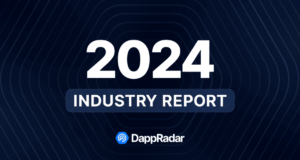Crypto.com: Our Proprietary Trading Is a Good Thing

Let’s delve into the issue that tarnishes the reputation of crypto exchanges: trading against their own clients. What makes the practice of proprietary trading so pervasive, and how does it influence user trust?
On this page
What exactly is proprietary trading?
Shortened as prop trading, proprietary trading refers to the operation where a bank or an exchange leverages its own capital to trade financial instruments, such as stocks, bonds, or cryptocurrencies. Put simply, financial transactions are made, not in the interest of clients or customers, but for the institution's own benefit, utilizing their accounts.
In the conventional exchange trading landscape, proprietary trading can be carried out by large-scale investors who scrutinize the market, pinpoint opportunities, and initiate trades to garner extra income.
Some financial establishments maintain dedicated teams or departments, where employees focus solely on conducting profitable trades on their behalf. They might employ an array of strategies and tools to make well-thought-out decisions and augment their chances of success.
On a basic level, consider it akin to an entrepreneur setting up a lemonade stall. They purchase lemons and sugar with their own funds, concoct lemonade, and sell it with the hope of earning a profit.
This activity appears to be devoid of any illicitness.
However, the functioning of a cryptocurrency exchange is far more intricate than a small-scale private shop.
Auxiliary (or proprietary) trading deviates from the process wherein a bank or exchange carries out its primary function – that is, connecting buyers and sellers in the market. Proprietary trading resembles more of a side venture, where financial institutions aim to turn a profit using their own resources. Here, they pocket the entire profit, not just a commission fee for their services.
Looking at the lemonade sale analogy, it's as if the entrepreneur has leased out the stall but is also selling their own lemonade on the side, while demanding monthly dues from the lessees.
Therefore, regulatory authorities keep a watchful eye on the trading activities of exchanges to ensure fair practices and prevent any manipulative or illicit actions that could potentially damage the market or investors.
The intricacies of proprietary trading on crypto exchanges
In the sphere of traditional finance, exchanges and trading companies exist as distinct entities. But in the realm of cryptocurrency, everything is fundamentally different. There is a growing number of services that aspire to be a jack of all trades: a trading platform, an asset custodian, a lender, a market maker, and potentially more. The conventional boundaries are becoming blurred, and this raises concerns.
US regulatory bodies have started taking measures against such activities. Not too long ago, the Securities and Exchange Commission took a tough stance against Binance, accusing the platform of manipulative practices aimed at artificially inflating trading volumes.
The chairman of the Securities and Exchange Commission, Gary Gensler, hit the nail on the head when he stated: “We don't see the New York Stock Exchange running a hedge fund, do we?” Despite any criticisms of Gensler's character, we have to agree with him. Such a mix of different roles is perplexing and undermines faith in the industry as a whole.
This questionable trading behavior is not confined to Binance. Now, Crypto.com, a Singaporean exchange backed by Hollywood star Matt Damon, is also being accused of prop trading. It turns out this company has its own internal trading teams as well.
Remarkably, Crypto.com has managed to keep this a secret since its launch in 2016. The founders went as far as to make sworn statements claiming they were not involved in any proprietary trading. But now the truth has been revealed, and it has significantly damaged their reputation.
Let's be honest: when you're a crypto exchange, your clients rely on you to provide a fair and transparent trading environment. They trust you to execute their orders without any hidden agendas in this highly volatile market. However, when you trade against them, it feels like a betrayal.
Crypto.com insists that their internal market maker functioned just like any third-party market maker, ensuring narrow spreads and efficient markets. The exchange's official representatives assert that all of this is part of a fair game and should not worry customers. They claim that the company's main revenue comes from transaction fees, and they have never engaged in inflating liquidity, inflating turnovers, or counter-trading. But is this really the case?
The issue extends beyond Crypto.com. It's about the reputation of the entire crypto exchange industry. When platforms engage in proprietary trading, their focus shifts from promoting fair exchange to quickly making money for themselves. Playing both sides of the market and entering a realm of pure conflict of interest is a slippery slope that can cause loss of trust in the community.
Traders prefer exchanges that create a transparent and safe trading environment. Blending trading teams with exchange functions sooner or later leads to a mix-up of funds and higher risks. FTX's experience vividly demonstrated this.
The content on The Coinomist is for informational purposes only and should not be interpreted as financial advice. While we strive to provide accurate and up-to-date information, we do not guarantee the accuracy, completeness, or reliability of any content. Neither we accept liability for any errors or omissions in the information provided or for any financial losses incurred as a result of relying on this information. Actions based on this content are at your own risk. Always do your own research and consult a professional. See our Terms, Privacy Policy, and Disclaimers for more details.


























